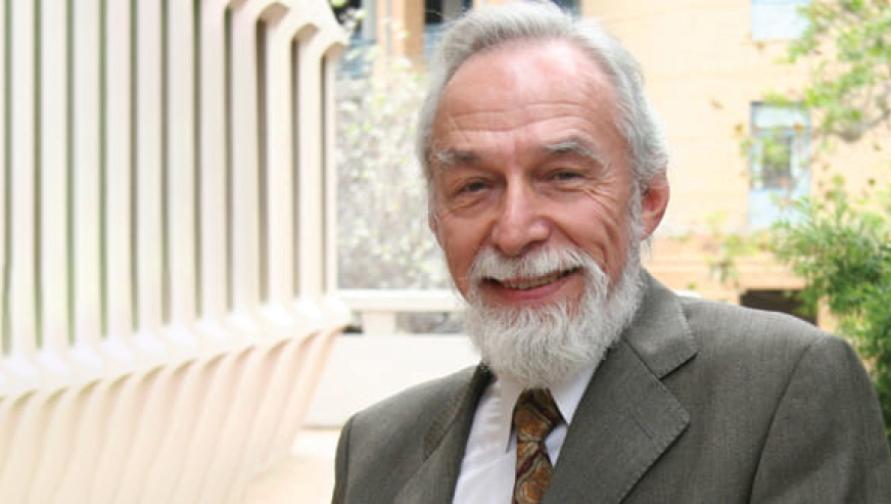
Over 30 years ago, Professor Emeritus of History Jaime E. Rodriguez became founding director of the Latin American studies program at UCI, now the Center for Latin American and Caribbean Studies. It was a testament to his life’s mission: fostering a deeper understanding of Latin American history. He accomplished this as a professor, campus administrator and co-founder and editor of the well-respected journal, Mexican Studies/Estudos Mexicanos. His widely published research examined Spanish America’s failure to modernize in the early 19th century, the collapse of the Spanish monarchy and the formation of Spanish American nations.
Rodriguez’s personal history began in the Ecuadorian city of Quito in 1940. He migrated to the U.S. with his mother in 1948. After attending school and a stint in the U.S. army, he earned a B.A. in economics in 1965 and an M.A. in history the following year from the University of Houston. He next went to the University of Texas, Austin where he earned a Ph.D. in Mexican history in 1970 and met his wife, another historian, Linda Rodriguez. He later moved to California where he would reside for the rest of his life. After teaching Latin American history at California State University Long Beach from 1969 to 1973, he transferred to UCI where he spent the rest of his career in the history department.
Rodriquez made important contributions to the then young university in his years as assistant dean for undergraduate studies (1979-1980), dean of graduate studies and research (1980-1986), director of the Mexico/Chicano Program (1984-1992), and as one of the founders and the first director of the Latin American Studies Program (1984-1991), a role he resumed a second time later.
A prominent historian of Latin America, he concentrated his research on Mexico and Ecuador. One of his main concerns involved broader questions of Latin American identity, state building and representative governance during the struggle for independence and then the first decades of independent states. He developed the well-known “Rodriguez thesis,” which argues that the independence of Spanish America was not the result of an anticolonial struggle but was rather a consequence of a great political revolution that culminated in the dissolution of a world-wide political system.
He wrote two influential overviews: The Forging of the Cosmic Race: A Reinterpretation of Colonial Mexico (University of California Press, 1980) and The Independence of Spanish America (Cambridge University Press, 1998). His magnum opus, "We are Now the True Spaniards" Sovereignty, Revolution, Independence, and the Emergence of the Federal Republic of Mexico: 1808-1824 (Stanford University Press, 2012), built on his interest in Mexican political state building.
The bilingual Mexican Studies/Estudos Mexicanos journal was financed by the University of California Institute for Mexico and the United States and the Universidad Autonomo de México. His esteemed international standing stretched beyond the U.S. and Mexico to South America and Europe, particularly Spain and France. He sat on nine editorial boards or advisor committees for journals in the U.S., Ecuador, Mexico and Spain and gave dozens of lectures at prestigious universities in North and South America and Europe and at international conferences. The quality of his research elicited fellowships from major prestigious granting agencies such as the Fulbright Foundation, the Mellon Foundation and the Rockefeller Foundation. In addition, he was awarded the UC President’s Research Fellowship.
Rodriguez’s original scholarship and keen analysis has led many historians and citizens of Latin America to reevaluate their past and its impact on their future. As a pioneer of Latin American studies at UCI, his influence will be felt for many generations to come.
Written by Steven C. Topik, Distinguished Professor Emeritus, UCI Department of History
